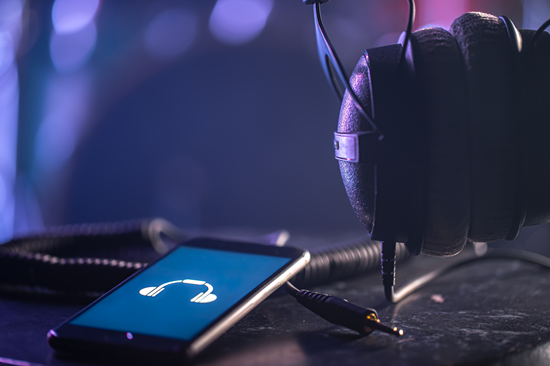Quick, straightforward answers to key questions around music licensing for independent retail businesses, as well as an alternative you may not have considered…

A lot of independent retail businesses may not give too much thought to the rules and regulations around music licensing, and no one could blame them – there are nuances and specifics that can make it tricky to get your head around and time is precious! However, many will also know that playing music in a store brings with it several key benefits.
Whether it’s creating a welcoming and engaging atmosphere that enhances the customer experience, encouraging shoppers to stay longer and potentially spend more, reinforcing a store’s brand identity or boosting staff morale, there are so many positive reasons to play music in store. But if it’s licensed music you want to play – be it chart hits, curated Spotify playlists or a bit of Abba on a Saturday – it can be a challenge to know what’s legal or not.
We’ve gone ahead and answered the 4 key questions about music licensing to help you make sense of it quickly and easily. If you just want to find out about royalty-free music options that don’t require a license, you can skip straight to that bit by clicking here.

How does music licensing work?
When a business plays music on its premises, it is considered public broadcasting of copyrighted material. By law, businesses must obtain music licences from companies that collect royalties on behalf of music creators. This ensures songwriters, composers, publishers, record labels, and performers are fairly compensated for the use of their work.
What music licenses do I need?
Historically, businesses needed two licences: one from PPL (Phonographic Performance Limited which represents record companies and performers); and one from PRS (Performing Right Society, representing songwriters, composers, and publishers).
Since 2018, these two licences still need be purchased, but the buying process has been streamlined through a single company which splits the royalties across both groups through the two separate tariffs. Handily, you can get TheMusicLicence from specialists PPL PRS, and this will cover both companies.
How do I get a music license?
Getting licensed is straightforward: businesses provide their details and music usage information during a short call or online form and can begin using music the same day.
The cost of obtaining a music licence in the UK varies based on factors such as the type and size of your business, and how you use music in your day-to-day operations. For example, shops and stores with an audible area of 50 square metres or less will pay an annual fee starting from £318.93 (ex VAT), or about 88p per day. These figures are subject to change and may vary depending on specific circumstances. For a precise quote tailored to your business, it's advisable to contact PPL PRS Ltd directly.
Licences are renewed annually, with reviews to ensure compliance.
How is music licensing enforced in shops and what happens if I play music without a license?
The two organisations (PPL and PRS), as well as PPL PRS themselves, actively monitor businesses for unlicensed music usage, including site visits and calls to staff. If a business is found playing music without a license, a 50% surcharge is added on top of the standard license cost to retrospectively cover the period in which unlicensed music was being played. In some cases, legal action may also be taken.
Royalty-free background music: an alternative for shops
Royalty-free background music offers a legal, cost-effective alternative to traditional music licensing. Services like Background Sounds provide seamless, high-quality music options that cater to businesses. Here are four key reasons to consider royalty-free music:

Cost savings: Avoid recurring licence fees and hefty fines for non-compliance.
Legal assurance: Use music without worrying about licences or copyright issues.
Customised options: Access music curated to suit specific business types or atmospheres.
Flexibility: Enjoy unrestricted use across multiple devices or locations without added fees.
What to look for in a royalty-free music provider
To confidently start using a royalty-free music provider for your store, these are the essentials that you’ll need from a service provider:
Certification: Ensure the provider supplies a legal certificate, proving your compliance with copyright laws.
Regular Updates: Choose a service that regularly adds new tracks to keep the playlists fresh.
Playlist Variety: Opt for a provider offering at least three tailored playlists to suit your store’s ambience.
Services like Background Sounds deliver premium recordings designed to blend naturally into your business environment while being significantly more affordable than traditional licences.
If you're interested in a discount for Bira members, email membership@bira.co.uk.
To contact PPL PRS about a music license, visit their website here.

Explore Bira's many member benefits...
The retail industry is undergoing a significant transformation but our Member Benefits provide independent retailers with genuine savings of crucial business services, as well as helping them to keep their business ahead of the curve.
From legal advice to exclusively negotiated terms with leading suppliers, and so much in between, Bira can help your independent retail business succeed.
Latest Resources
-
Valentine's Window Display Competition
Win a membership subscription voucher by getting involved with Bira's Valentine's Window Display Competition!
-
Taking the next step with planograms: A practical step-by-step guide to remerchandising your shop
A practical guide to using planograms at shelf, category and store level to plan remerchandising more clearly and effectively.